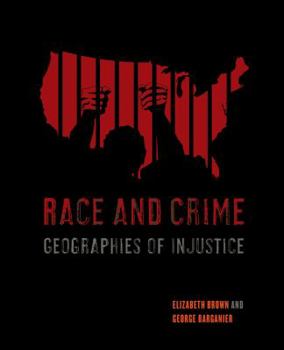Race and Crime: Geographies of Injustice
Criminal justice practices such as policing and imprisonment are integral to the creation of racialized experiences in U.S. society. Race as an important category of difference, however, did not arise here with the criminal justice system but rather with the advent of European colonial conquest and the birth of the U.S. racial state. Race and Crime examines how race became a defining feature of the system and why mass incarceration emerged as a new racial management strategy. This book reviews the history of race and criminology and explores the impact of racist colonial legacies on the organization of criminal justice institutions. Using a macrostructural perspective, students will learn to contextualize issues of race, crime, and criminal justice. Topics include:
How "coloniality" explains the practices that reproduce racial hierarchiesThe birth of social science and social programs from the legacies of racial scienceThe defining role of geography and geographical conquest in the continuation of mass incarcerationThe emergence of the logics of crime control, the War on Drugs, the redefinition of federal law enforcement, and the reallocation of state resources toward prison building, policing, and incarcerationHow policing, courts, and punishment perpetuate the colonial order through their institutional structures and policies
Race and Crime will help students understand how everyday practices of punishment and surveillance are employed in and through the police, courts, and community to create and shape the geographies of injustice in the United States today.
How "coloniality" explains the practices that reproduce racial hierarchiesThe birth of social science and social programs from the legacies of racial scienceThe defining role of geography and geographical conquest in the continuation of mass incarcerationThe emergence of the logics of crime control, the War on Drugs, the redefinition of federal law enforcement, and the reallocation of state resources toward prison building, policing, and incarcerationHow policing, courts, and punishment perpetuate the colonial order through their institutional structures and policies
Race and Crime will help students understand how everyday practices of punishment and surveillance are employed in and through the police, courts, and community to create and shape the geographies of injustice in the United States today.
Format:Paperback
Language:English
ISBN:0520294181
ISBN13:9780520294189
Release Date:October 2018
Publisher:University of California Press
Length:440 Pages
Weight:1.70 lbs.
Dimensions:0.8" x 7.4" x 9.2"
Customer Reviews
0 rating





